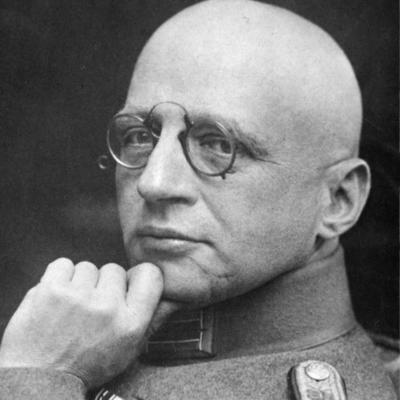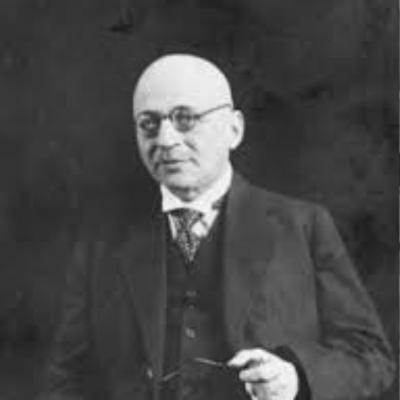Anúncios
The invention of the Haber-Bosch process revolutionized the way the world produces food, making it possible to meet the needs of a constantly growing global population. By enabling the mass production of ammonia, this process ensured abundant fertilizers for modern agriculture. Its application allowed for remarkable advances in agricultural productivity and global food security.
Developed by Fritz Haber and improved by Carl Bosch, the process became essential for large-scale farming. Its influence transcends agriculture, also affecting global trade and economy. Combining science and innovation, the Haber-Bosch process remains a milestone in chemical engineering applied to human survival.
Anúncios

The Legacy of Fritz Haber in Modern Agriculture
Fritz Haber was one of the most influential scientists of the 20th century, thanks to the creation of a revolutionary method for synthesizing ammonia. With his discovery, he paved the way for a new era in agriculture. His contribution remains present in agricultural practices to this day.
Despite the controversies surrounding his career, his positive impact on food production is undeniable. The ability to generate fertilizers on a large scale changed the course of human history. Millions of lives have been benefited by his discovery.
Haber’s legacy is also at the core of many debates on scientific ethics. His involvement in military applications generated criticism, even in light of his contribution to agriculture. Still, his invention remains essential for global food supply.
By separating the scientific legacy from his political decisions, it is possible to understand the lasting value of his contribution. The Haber-Bosch process is a reminder of how science can transform entire societies. And it remains a key element in the fight against hunger.
The Revolution of Synthetic Fertilizers
Before the Haber-Bosch process, farmers relied on natural sources of nitrogen. Crop rotation and manure use were not enough to sustain growing populations. Agriculture was limited and unstable.
With synthetic fertilizers, it became possible to expand agricultural production in an unprecedented way. Crops became more productive, and food scarcity was gradually reduced. Chemistry became the foundation of modern agriculture.
The impact was especially notable in developing countries. Regions once unable to produce enough began to achieve food self-sufficiency. Access to fertilizers became a factor of economic and social stability.
This revolution transformed agriculture into a more technical and efficient activity. Agricultural productivity increased considerably, and fertilizers came to be considered strategic inputs. Today, they are indispensable to the global food system.
Economic Implications of the Haber-Bosch Process
The adoption of the Haber-Bosch process stimulated economic growth in various regions of the world. More efficient agricultural production resulted in surpluses that boosted trade. Fertilizers became a global commodity.
Fertilizer-producing countries gained relevance on the international stage. The agricultural market globalized, linking economies through the food production chain. This created new opportunities and challenges for nations.
The increase in productivity also generated jobs in different sectors. Chemical industries, transportation, and logistics expanded to support intensive agriculture. Rural economies were revitalized in several parts of the world.
However, this model brought dependency on industrialized inputs. Volatility in fertilizer prices affects the economic stability of agricultural countries. Therefore, sustainability and equitable access to inputs are now priority issues.
How the Haber-Bosch Process Revolutionized Agriculture

The Haber-Bosch process, developed in the early 20th century, fundamentally transformed agriculture and food production worldwide. This innovative chemical process synthesizes ammonia from nitrogen and hydrogen gases, enabling the mass production of essential fertilizers for modern agriculture. By providing a reliable source of nitrogen, a critical nutrient for plant growth, the Haber-Bosch process played a crucial role in increasing agricultural productivity. As a result, it became a pillar of food security, allowing us to feed a growing global population expected to reach nearly 10 billion by 2050.
Before the advent of the Haber-Bosch process, agriculture relied heavily on natural sources of nitrogen, such as manure and crop rotation. However, these methods were often insufficient to meet the demands of an expanding population. The introduction of synthetic fertilizers revolutionized agricultural practices, allowing farmers to cultivate larger areas of land and produce bigger harvests. This technological advancement not only increased food availability but also contributed to significant economic growth in many regions of the world. The Haber-Bosch process, therefore, represents a remarkable intersection between chemistry and agriculture, showing the potential of scientific innovation to address some of humanity’s most pressing challenges.
Advantages of the Haber-Bosch Process in Global Food Security
The Haber-Bosch process offers numerous advantages that have significantly impacted global food security. One of the most notable benefits is the ability to produce ammonia on a large scale, a key ingredient in nitrogen-based fertilizers. This availability has allowed farmers to improve soil fertility and increase crop yields, leading to a rise in food production. In regions where food scarcity was a pressing issue, the implementation of the Haber-Bosch process led to a remarkable transformation in agricultural practices and food availability.
Another advantage of the Haber-Bosch process is its role in reducing reliance on natural sources of nitrogen. Before its development, farmers heavily depended on organic materials and natural nitrogen deposits, which were often limited and unevenly distributed. The synthetic fertilizers produced by the Haber-Bosch process provided a consistent and reliable source of nitrogen, enabling farmers to optimize their crop production regardless of local resource availability. This shift not only increased agricultural efficiency but also contributed to greater food security in many parts of the world.
Moreover, the Haber-Bosch process facilitated the agricultural revolution by supporting advancements in farming techniques and technologies. The greater availability of fertilizers encouraged the adoption of more intensive agricultural practices, including monoculture and mechanization. As a result, farmers are now able to cultivate larger areas of land and produce more food with fewer resources. This enhanced productivity has been crucial in meeting the challenges posed by a growing global population and changing dietary preferences.
Finally, the Haber-Bosch process played a significant role in promoting international trade in agricultural products. With the ability to produce fertilizers at scale, countries that previously struggled with food production can now export surplus crops to meet global demand. This not only improved food security in importing nations but also contributed to economic growth and development in exporting countries. The Haber-Bosch process, therefore, has far-reaching implications for global food systems, shaping how we produce, distribute, and consume food.
How the Haber-Bosch Process Contributes to Sustainable Agriculture

The Haber-Bosch process plays a crucial role in ensuring that agriculture meets the demands of modern society, being essential for the production of sustainable food. By increasing nitrogen fixation for plant growth, the process allows farmers to grow crops more efficiently, minimizing the environmental impact of farming practices. This increased efficiency is vital for sustainable agriculture, as it enables farmers to produce more food with fewer resources, reducing pressure on the planet’s ecosystems.
In addition to improving nitrogen fixation, the Haber-Bosch process produces fertilizers that significantly increase food production. These fertilizers not only improve crop yields but also contribute to overall soil health. By providing essential nutrients, synthetic fertilizers help maintain soil fertility over time, ensuring that land remains productive for future generations. This aspect of the Haber-Bosch process is particularly important in the context of sustainable agriculture, as it promotes responsible land management and resource conservation.
The Haber-Bosch process also supported the agricultural revolution on a global scale, allowing farmers to adopt more advanced techniques and technologies. With greater availability of fertilizers, farmers can implement practices such as precision agriculture, which uses data and technology to optimize crop production. This approach not only increases productivity but also minimizes waste and reduces the environmental impact of farming. By embracing these advancements, farmers can contribute to a more sustainable food system that meets the needs of a growing population while preserving the planet’s resources.
Furthermore, the Haber-Bosch process increases crop yields to feed a growing population. As the global population continues to increase, the demand for food will also rise. The ability to produce fertilizers at scale through the Haber-Bosch process ensures that farmers can meet this demand, thereby contributing to global food security. By reducing dependence on natural nitrogen sources and promoting advances in chemical engineering, the Haber-Bosch process has become an indispensable tool in the pursuit of sustainable farming practices that can support the world’s population for generations to come.
Increases nitrogen fixation for plant growth
Produces fertilizers that boost food production
Supports the agricultural revolution globally
Increases crop yields to feed a growing population
Reduces reliance on natural nitrogen sources
Promotes advances in chemical engineering
The Haber-Bosch process plays a crucial role in ensuring that agriculture meets the demands of modern society, being essential for the production of sustainable food. By providing a reliable source of nitrogen and enabling the development of advanced farming techniques, this innovative process has transformed the way we approach agriculture and food security.
Did You Enjoy Learning About Fritz Haber and the Process That Feeds Billions Worldwide?
Understanding the impact of Fritz Haber and the Haber-Bosch process on global food security opens up a world of possibilities for future innovations. By exploring these advancements, you can appreciate the importance of science in agriculture. The journey of feeding billions continues, and there is much more to discover about the intersection of chemistry and food production. Stay curious and keep learning!
Frequently Asked Questions
Who was Fritz Haber?
Fritz Haber was a German chemist famous for developing a method to produce ammonia. This helped feed billions around the world.
What is the importance of the Haber process?
The Haber process transforms nitrogen from the air into ammonia. This ammonia is used as fertilizer, increasing food production globally.
How does the Haber process feed billions?
It provides essential fertilizers. With more fertilizers, crops grow more, so more people have food.
Does the Haber process have problems?
Yes, there are environmental concerns. The use of fertilizers can pollute water, affecting health and nature.
Fritz Haber and the future of food?
His work is fundamental. Food production continues to grow, but challenges remain
